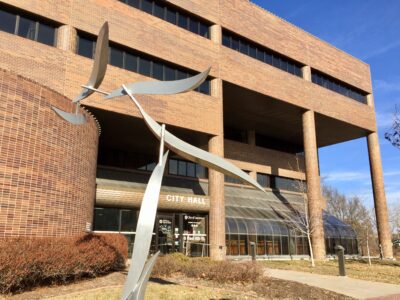Briefly
Florida: Gov. Bush’s daughter jailed for drug violation
Gov. Jeb Bush’s 24-year-old daughter, Noelle, was jailed Wednesday for having prescription pills while in a treatment center, violating a court-ordered drug treatment plan.
A judge sentenced Bush to three days behind bars in Orlando for contempt of court.
Bush had the pills in her possession for about a half-hour, but tested negative for having taken them, said her lawyer, Pete Antonacci. He said he didn’t know what the pills were.
Bush was arrested in January at a pharmacy drive-through window for allegedly trying to buy the anti-anxiety drug Xanax with a fraudulent prescription. She was admitted to a drug treatment center in February, with the possibility the charges would be dropped if she completed the program.
“We’re saddened and disappointed that my daughter’s not complying with the court order,” Gov. Bush said. “People that have addictions don’t recover in a perfect way. My daughter’s not perfect.”
California: Demonstrators target judges in pledge ruling
The two appeals court judges behind the ruling declaring the Pledge of Allegiance unconstitutional have been targeted by demonstrators surrounding the courthouse and a plane trailing a banner that read: “One Nation Under God.”
“It’s the noisiest thing I’ve ever experienced,” said Alfred T. Goodwin, who issued the ruling June 26 with Stephen Reinhardt, a fellow judge on the 9th U.S. Circuit Court of appeals.
In Coronado for a conference this week, Reinhardt and Goodwin said politics, notably the upcoming congressional elections, are fueling the controversy.
“I can’t think of any decision where the entire Congress immediately rushes to condemn a decision by the court,” Reinhardt said. “It’s getting to be election time and this gives everyone in Congress a chance to prove they are patriotic.”
Pennsylvania: Study sets earlier date for first chocolate use
It wasn’t as sweet as modern hot chocolate, but the Mayans were drinking cocoa 2,100 years before Columbus landed in the New World, or about 1,000 years earlier than previously thought, researchers say.
An analysis of 2,600-year-old pottery confirmed that ancient Mayans made cocoa drinks as early as 600 B.C. in an area of Central America that some anthropologists have nicknamed “the cradle of chocolate.”
In a report today in the journal Nature, Hershey Foods Corp. biochemist Jeff Hurst details tests of earthenware teapots excavated at a Mayan archaeological site at Colha in Belize. Hurst and his research team used a mass spectrometer and liquid-gas chromatography equipment to detect traces of cocoa.
The results push back the confirmed date of cocoa residue in the Mayan region from A.D. 400, as determined in previous Hershey lab work on burial pots from Guatemala, said anthropologist Rosemary Joyce of the University of California at Berkeley.




